'Phantosmia' casts an 'immersive spell' at the Venice Film Festival
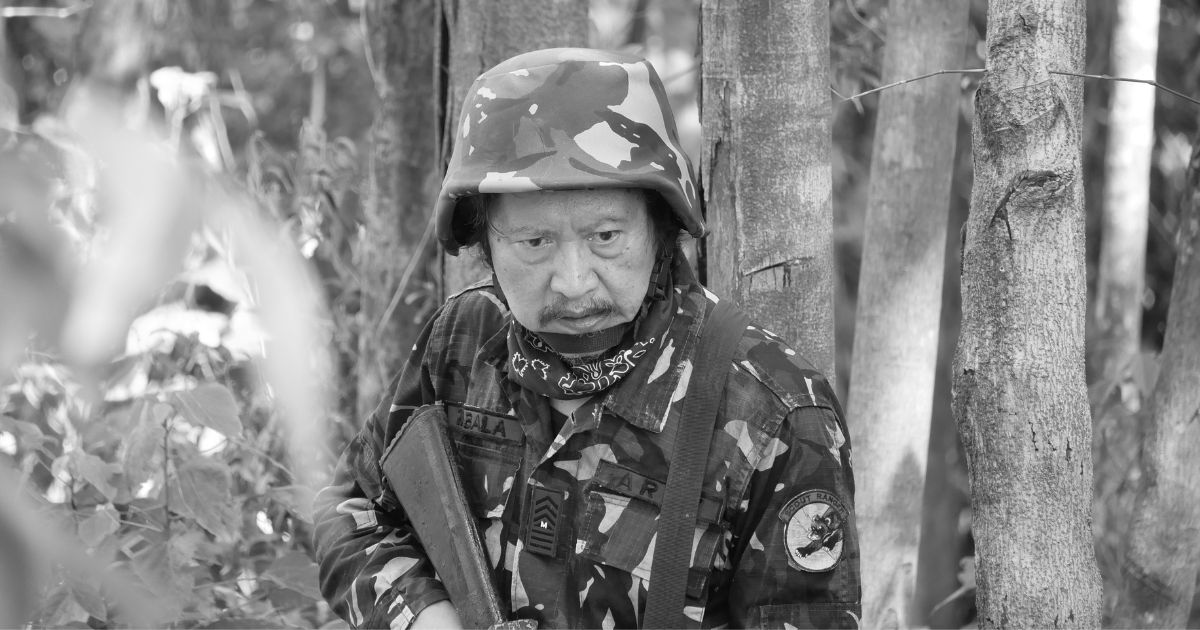
Janine Gutierrez was giddy with excitement as she looked like a princess in her baby blue gown on the red carpet. Ronnie Lazaro was proudly wearing his one-of-a-kind Jose Rizal-inspired barong. Paul Jake Paule sported a handsome blue suit and looked very princely as he posed for the photographers. Dong Abay, with his hat and trademark twisted beard, was still pinching himself that his dream to be at the Venice Film Festival came true because of his involvement in Lav Diaz's Out of Competition entry to the 81st festival, "Phantosmia."
Most of them were first timers at the oldest film festival in the world and they all couldn't believe that they were realizing their dreams of being part of it. Walking the red carpet where Hollywood A-listers like Angelina Jolie, Brad Pitt, George Clooney, Nicole Kidman, Adrien Brody, Tim Burton, Lady Gaga, Joaquin Phoenix, Kevin Costner, Jude Law, Pedro Almodovar, Julianne Moore, Tilda Swinton, and Cate Blanchett.
Hazel Orencio, who has worked with Lav Diaz for the past 13 years, is probably the most veteran when it comes to attending international film festivals with Diaz. Not only an actress in "Phantosmia," Orencio is also the supervising producer of the film.
Joining the group on this trip is producer Paul Soriano, who is accompanied by his wife Toni Gonzaga. Soriano, who is also a first timer in Venice, is credited for saving the film from not being done after an actor and a producer suddenly backed out during Christmas time.
Diaz, who has received accolades from the Venice Film Festival in the past – Special Mention Award in 2007 in the Orizzonti category for "Kagandahan sa banwaan ning mga engkanto," Best Film Award in 2008 in the Orizzonti category for "Melancholia," Gold Lion Award in 2016 for Best Film for "Ang Babaeng Humayo," and Best Director Award in 2020 for "Lahi, Hayop (Genus, Pan)" in the Orizzonti section – was so excited to bring his cast to the festival.
"Phantosmia," in fact, has been getting rave reviews from the critics.
We were able to interview Diaz, Soriano, Orencio, Lazaro, Gutierrez, Paule, and Abay during the press conference at the Palazzo Del Casino and they talked about their experiences working with Diaz, getting to know the "rock and roll" style of directing of Diaz, finding their family in the Lav Diaz tribe, their excitement to be at the festival, among others.
Lav Diaz (Writer, Director)
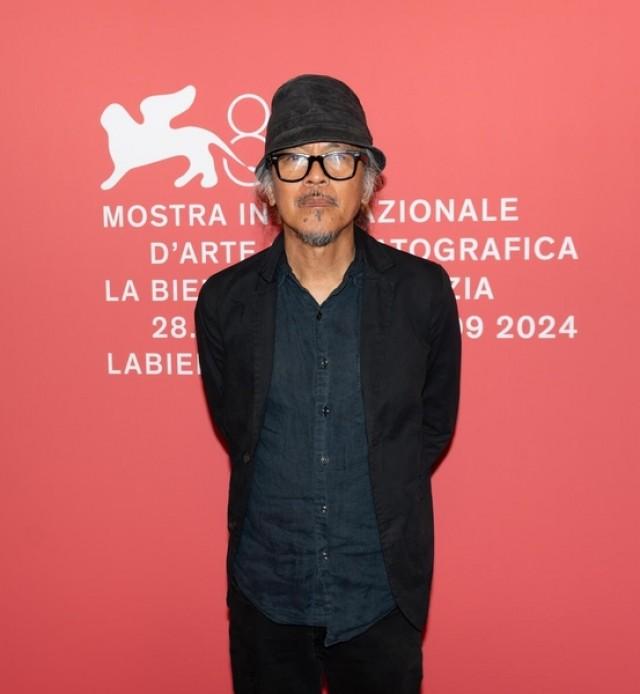
Years ago, one of my relatives was confined to a military hospital in the country. We stayed there for almost a month. There's a section where there's a lot of combat duty personnel who were having traumas with the very violent confrontations with the Filipino communist movement members and the Muslim secessionist movement in the country then. So, I talked to the doctors and counselors there and one of the problems was Phantosmia. Some kind of an olfactory problem springs from the trauma of violence. And I used it as a metaphor for the film to confront a violent past.
Talk about the challenges you encountered in the making of this film because this film almost did not get made. And how Paul Soriano came to the rescue.
We have been preparing for more than two months. We prepared sets, all this the penal colony set up. And we have this big network supporting us. Big actors as the lead actor. And then two days before the shoot, the actor arrived. We were so happy that he was already there. And then he said, I couldn't do the film. And of course, the network withdrew. And before that, Paul and I were communicating. "Brother, what are you doing now?" So, we were in constant communication. And then he visited two weeks before that. And then of course when the actor quits and the network quits, and it's almost Christmas, and we're like, what are we going to do? There's no money, there's no actor, blah, blah, blah. And we reached out to Ronnie (Lazaro), "Can you come?" And then Paul. I said, "Paul, can you help me?" And he said, yes. That's it. We're shooting. We started shooting immediately. He's the savior of the film, Paul. The saint. So now we have the film here. Thank you, Paul.
This is a story that centers on a character who goes on a personal journey of redemption, so my question is about the notion of redemption. Do you believe indeed that someone like him, someone who has been committing some crimes and realizing that he killed people can redeem himself? Is there redemption?
I still have faith in humanity. We're rational beings. We're animals, of course, but we're rational beings and we can do things that can change things. I think a man can change no matter how deep he's on criminality or anything. Man is a moral being. I believe in that. I have faith in humanity.
Your stories are oftentimes very much related to a certain specific backdrop meaning the location, the choice of the location and the choice of the history of those locations, what happened there, and what the bigger scope of history with capital H has been bringing to those places. So, I would like you to tell us something, especially for those who are not from the Philippines, about the choice of the places where you shot and that you have imagined for this story and the set-up of the events that are nourishing the story.
My process is always I write the script, but there's a lot of preparations to finding the real geographical, the very physical setup where I want to set the narrative and the trajectory of the story.
So, there's an idea. I look for places where I can map out the whole setup of this universe that I'm going to create. Once I see the place, and I'm confident that it's going to take place in that area that's when I build and check where the characters will move.
At some point, I'm going to encode a story on a certain epoch or period not just in Philippine history, but in humanity's history. It's easy to contextualize a story if you have a certain very specific period.
In this case, it's 1979, a period where there's a lot of violence in the place where I grew up. Really violent confrontations between Christians and Muslims, and then the military and the communist movement. I witnessed two massacres.
One time my elder brother and I were going back from school and the little Muslim village we were passing by every day, all the houses were razed to the ground, and bodies were being piled up by the military. They were massacred by a Christian militia group. So, I witnessed these things and it's easy to encode a narrative if there's an epoch and there's a particular geographical location that I want.
Paul Soriano (Producer)
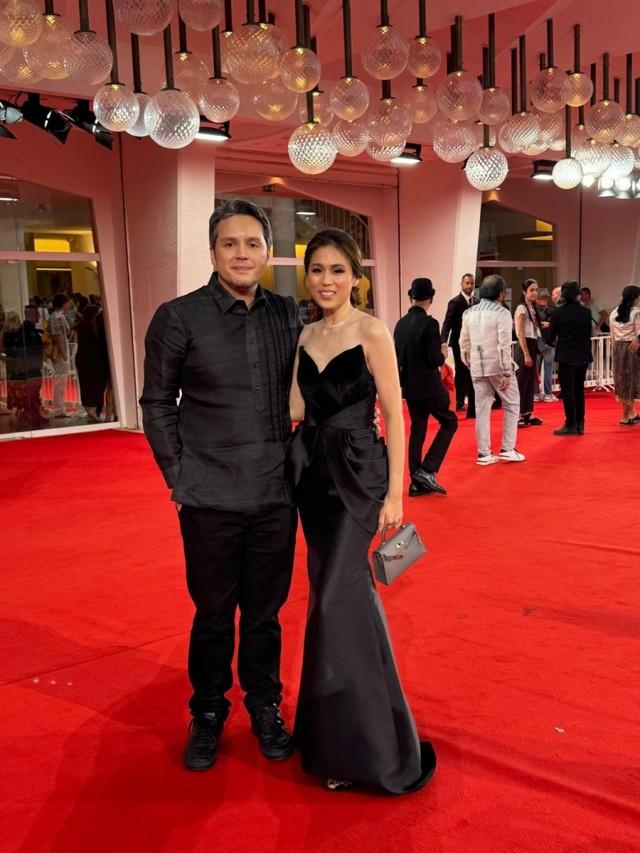
Yes. I remember visiting Lav about a week, two weeks before his shoot. He showed me the whole set of "Phantosmia." He showed me even some of the actors who were there. I know Hazel was also there. We spent I think the whole day around Quezon. Going around. And of course, I've known Lav for almost 10 years now. The first time we worked together was "Lullaby to the Sorrowful Mystery." And then we co-wrote a film called "Mañanita," which competed in Tokyo and other projects. He even acted in one of my films. And when Lav emails you, it's almost as if it's a poem or a script. So, when I read the email seeking for some assistance, it was just an automatic yes. And I'm always here for him. He's like my brother. I always say that. I love collaborating with him. I think for me the most important thing it's just how much I get to learn from him. I myself, a filmmaker, I consider him almost like a mentor to me. And just being in his universe, around his team, it's just so inspiring. And I didn't think from Quezon we'd be now here in Venice. It's my first time. So, thank you Lav for this.
What you did here is heroic because given the bleak commercial landscape of cinema, even the commercial cinema is suffering so can you elaborate on why you decided to finance "Phantosmia?" Especially in the context of how difficult it is especially for a cinema like this to be produced in the Philippines.
No, you're right. I mean Philippine cinema today at least from a business perspective is probably at one of its lowest points in maybe the last 50 years. Personally, I've been in the business for about 17 to 18 years and it's passion first over business. It's a craft, it's art over revenues for me.
My company has been afloat for the last several years, we haven't really made the big box office Philippine movies but we're afloat and if I can follow my passion and just continue to support artists, master artists like Lav and these wonderful actors to create stories that are not just for our local audience but for a world audience, it's worth it for me.
Obviously, we do have a business model to keep the company afloat but when projects like this come to my plate it's an easy yes, and again, I'm story-driven too so when Lav pitched the story and like I said his email was just beautifully written and if I can, I will. It's probably that way, if I can, I will.
I can't support everything but for me, it's the passion of filmmaking and the craft of these artists over business any day. So, I follow that and so far, it's led me to some great experiences like this. We'll see where this film takes us.
Ronnie Lazaro (Hilarion Zabala)
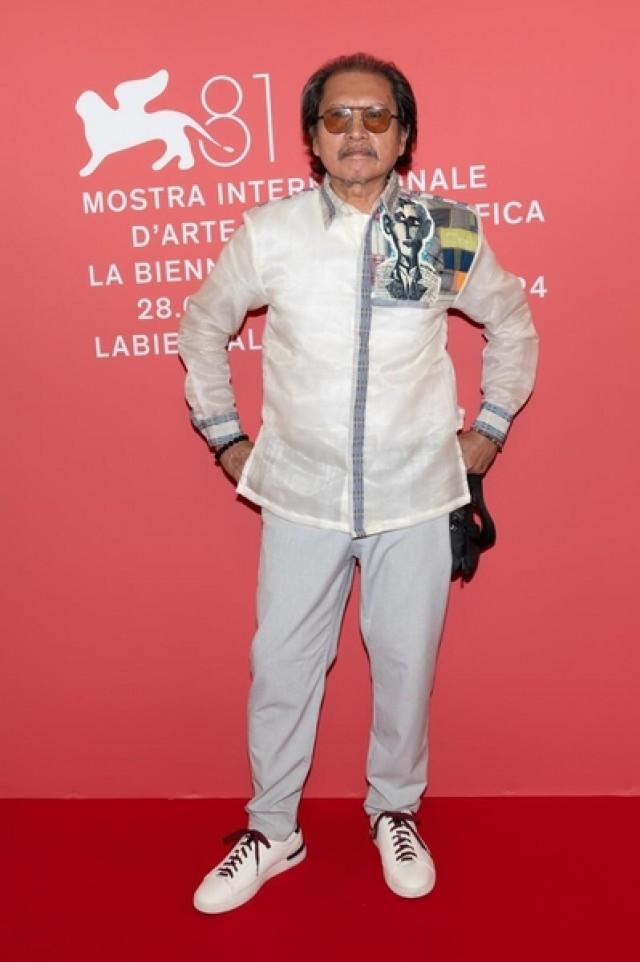
We are very lucky to be part of Lav's journey and many actors in the industry are envious of what we are attaining at this point because they want to work with Lav and we are the chosen few that Lav has engaged in his work and working with Lav is like a vacation. It's no pressure. That's why you get to be more creative about it because when there's a lot of pressure as an artist you can't deliver that much freedom to it so it's always nice working with Lav.
How did you prepare for your role?
Because Lav and I go back a long way, it's almost like psychic. I know where his mind is going and along the way, of course. But in this particular project, I could relate because I grew up in the area where this story is about, especially in Mindanao where there's a long war between the people living there.
As a child growing up, I was very much affected by it and there was a lot of fear; where would this war go, it might reach my island, it might create chaos all over. It was wild and violent. I know there were a lot of displaced people and many stories regarding this movie that I have seen, heard, read, and could relate to it. Hilarion Zabala, my character, Lav painted it that way that I know I suit and understand this character very much.
Ronnie, thanks to Lav and to you, we get a sense of what Phantosmia is for many of us who watch the film it's our first time to get to know that such a condition exists. What was your research like? Because watching the film you do get a sense that you have an ease that you're smelling something that nobody else can smell.
You live the character; you don't act because you are the one doing it. It's an experience. I'm lucky to have witnessed the same experience somehow not as close as Director Lav had but I felt anxiety and fear while those events were happening. So, it's almost easy to get those emotions in my craft. It's something that I don't have to act on. It's something I have to live and share with people the horrors of war... ah war.
Janine Gutierrez (Reyna)
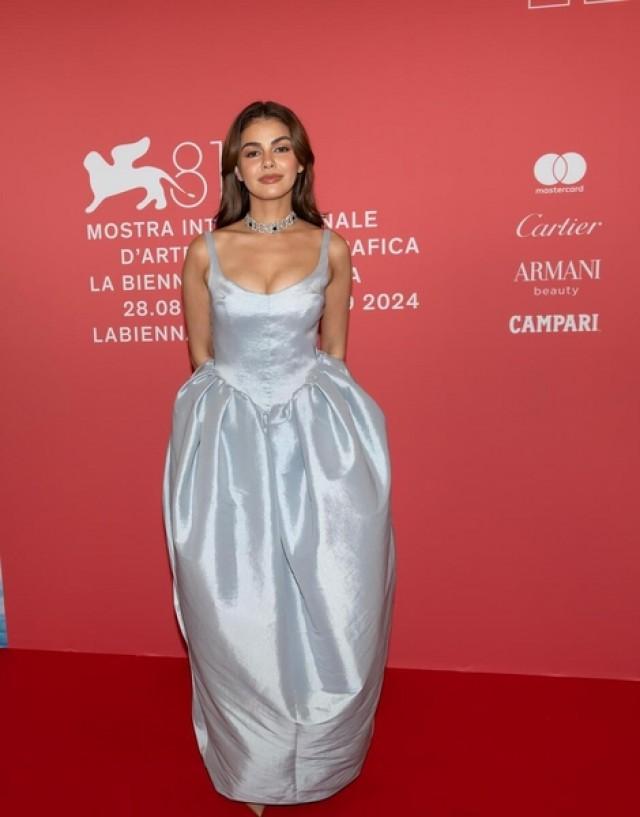
It was always my dream to work with Director Lav and luckily enough I worked with Hazel on a TV series, and I kept telling her if there's ever a chance that you need anything, I'll also do anything in your film even if you kill me in the bushes, I'll do it. And luckily enough I was able to join them in this film. Before I met Director Lav, I asked the other actors that I had worked with, how should I act. How can I prepare and do a good job for Director Lav? And everybody told me the same thing, that director Lav is just rock and roll.
True enough, when I worked with him, his set was very family-style. It's equal collaboration from everyone on the set, from Director Lav to the audio, to the costumes. It's such an intimate set and although the topics can be very deep and painful, on set it's really about love, and family and filmmaking and I think that translates also when you watch his films. That's why there's so much empathy and you go through the stories of these characters. So, I'm so happy to be here also with this team.
How did you prepare for your role?
It's quite interesting how direct Lav works. It's not like anyone else I've ever worked with because I said yes to his films without knowing anything about them. (laughs) So, there's not much really preparation involved. I think the most I can say is there's just openness and trust in the team, which is something that you feel when you step onto Director Lav's set.
I usually read the lines in the morning. It's funny because the night before our shoot days the cast and I message each other on our phones and say, "What do you think will happen with the story tomorrow?" And surprisingly we can never predict where Director Lav will bring the story. So, it's really about openness, and also Director Lav gives us actors so much freedom. He's the type that will show us the frame and see that you can walk from here to here, and you can do whatever you want, rock-n-roll. That kind of trust also encourages honesty from an actor and we're so grateful to be able to work in that set.
Now that you're in the oldest and one of the most prestigious film festivals in the world, what's your experience so far?
I'm so excited. It's a dream come true for me and I'm so happy and ecstatic to be here. I watched two films on the first day I got here, and I've been messaging Ate Hazel every day about being so excited to be here.
It's always been a dream of mine to be part of local Filipino films that make it to the global stage. I know there's so much talent in the Philippine film industry and there's so much potential there and I'm happy to be with a group of people who feel the same way as what Paul said, it's not really about revenue, and I feel the same way. It's really about these important stories that need to be heard the world over and uniquely Filipino point of view. I'm just so happy to be here and be with all of you. I just can't stop smiling.
Hazel Orencio (Narda, Supervising Producer)
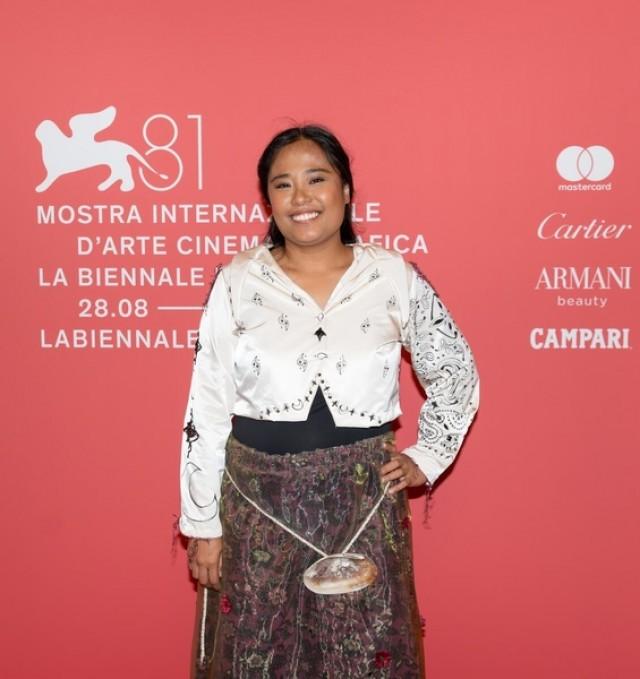
I've been with Lav for 13 years now. But every film is still a different story and of course, this one is different because of the story that Lav said earlier about the project almost not being pushed. So, thank you, Paul. It's always a rest. I call it a rest. It doesn't feel like working with Lav. It always feels like we're just resting because you don't feel tired. You just feel tired being in the role acting but the environment and all. My team is so supportive of each other. Our actors are supportive of each other and yeah. Of course, I would always say that I always love working with Lav.
How did you prepare for your role Narda?
I'm the kind of actor who does not prepare. I just read the script at the last minute even if the lines are long, I memorize easily and I think of the character just at the last minute, so I interpret the role per scene. It's so fresh from reading the script, and the feeling that you get from just reading it at the last minute is so effective for me. That's how I usually prepare as an actor.
Paul Jake Paule (Major Lukas)
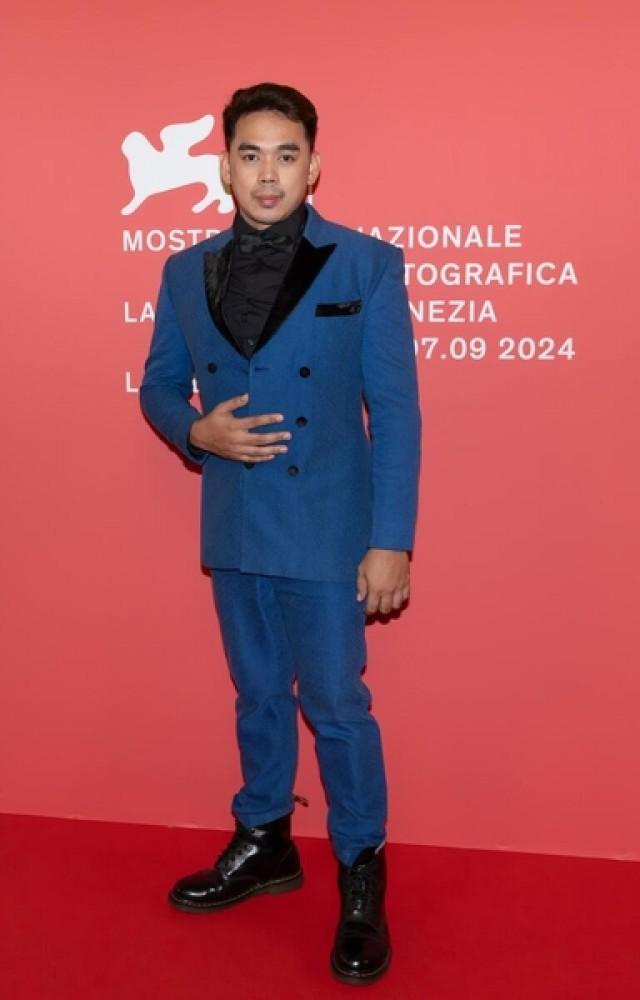
Cliché as it may sound, but it's always a pleasure and I'm so grateful to be directed by the master director from the Philippines. It's so surreal to be part of this film because it's my first time. It's my first international travel and I'm so grateful to Lav and the Lav team and to Sir Paul Soriano for all the support. Thank you so much.
Can you tell us any memorable experiences while doing this movie?
For me, every day is memorable because when we receive our scripts it's always the long lines. The difference between doing movies in other film productions or outfits is most of the lines are short, but with Director Lav you always need to trust the lines, you need to trust Director Lav every day. I love my character. If I'm not mistaken, this is my fourth or fifth film with Director Lav, but this one is the major role that he gave to me, so I'm honored, thankful and grateful to Director Lav.
Dong Abay (Marlo)
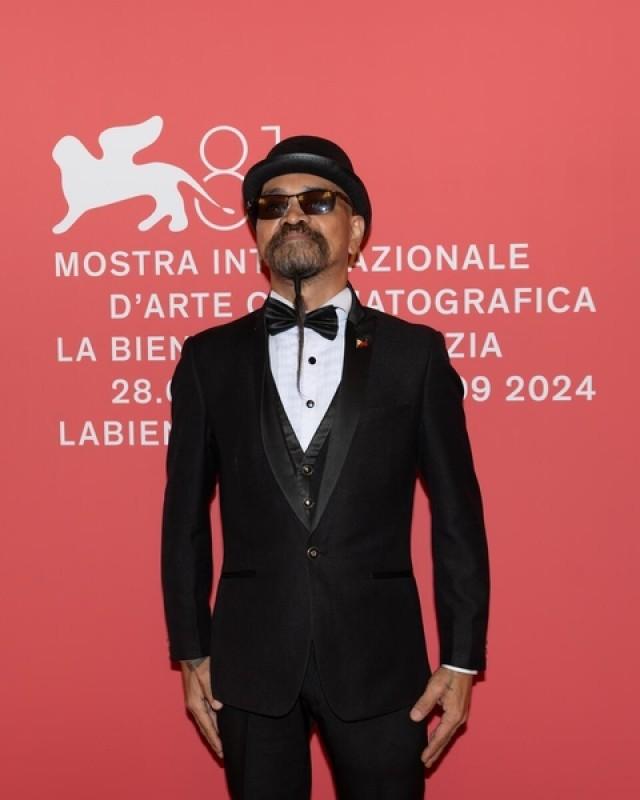
I received an email from Hazel, and she told me that Lav wanted me to act in this film. And I said yes, even if Lav wants me to be killed in the film, (laughter) I'm willing to do that because it's Lav. So, I was told to go to São Paulo, Quezon. I was told that my role is about a singer. Lav wanted me to sing in the film, but it turned out that I think Lav has a shortage of time to make melodies for the poetry that I did in the film. I love my role because I'm a songwriter, I'm a writer.
I really love the language because I write in our language, Filipino, Tagalog. So, I am very honored to be part of this film because I love to speak our language. Lav is very rock and roll.
Tell us about the poetry that you wrote in the film.
It was written by Lav. So, Lav is a real poet. He knows the language and I love pronouncing the lines, the rhymes, and everything that he wrote. I even gave him a shirt; because I was wearing a shirt it was a Makata and it was a special shirt. When I saw Lav on the first day of the shoot I gave it to him, we are the same size. So yeah, he's a poet, he's a real poet for me speaking as a ... no, I'm not a poet. I just love writing.
I've been doing this writing for about 30 years so I'm a Filipino rock star, but I'm not bragging.
—MGP, GMA Integrated News




